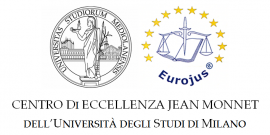Deroghe, eccezioni e urgenza d’intervento: il processo decisionale nell’emergenza sanitaria
Il contributo analizza i molteplici meccanismi utilizzati dall’Unione europea al fine di rispondere all’esigenza di tempestività imposta dall’emergenza sanitaria, in mancanza di procedure d’urgenza codificate. In particolare, il contributo si sofferma sulle modifiche verificatesi nella prassi decisionale con riguardo al coinvolgimento dei Parlamenti nazionali e dei meccanismi di voto di Parlamento europeo e Consiglio. Nella difficoltà di regolare funzionamento delle Istituzioni e in presenza di processi decisionali complessi e articolati, sono stati utilizzati i margini offerti dal vigente quadro normativo, per assicurare – nei limiti delle competenze che i Trattati attribuiscono all’Unione e nel massiccio ricorso ad atti di soft law – non solo la revisione e l’adeguamento del diritto in vigore, ma anche nuovi interventi normativi volti a fronteggiare l’inaspettata e drammatica emergenza.
Per leggere l’intero articolo, clicca qui
This article analyses the multiple mechanisms used by the European Union in order to respond to the need for a timely response to the Covid19 crisis, in the absence of codified emergency procedures. In particular, this article addresses the changes in the decision-making practice of the EU, looking to the involvement of national Parliaments and the voting mechanisms of the European Parliament and the Council. Given the current difficulties in the proper functioning of the EU institutions, as well as the chronic complexity of EU decision-making procedures, the EU has been using the margins offered by the current legal framework — within the limits of the principle of conferral and using extensively soft law — to revise and adapt the existing law and also to adopt some new legislative measures aimed at tackling this unexpected and dramatic emergency.
To read the full article, click here


